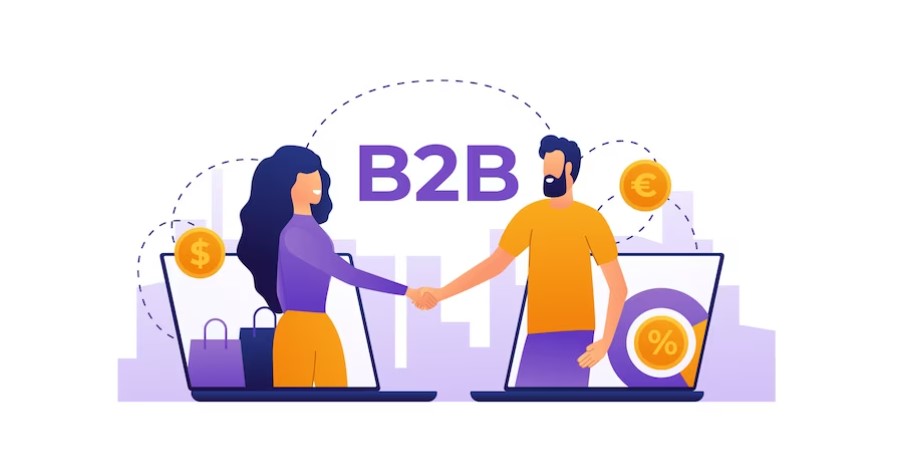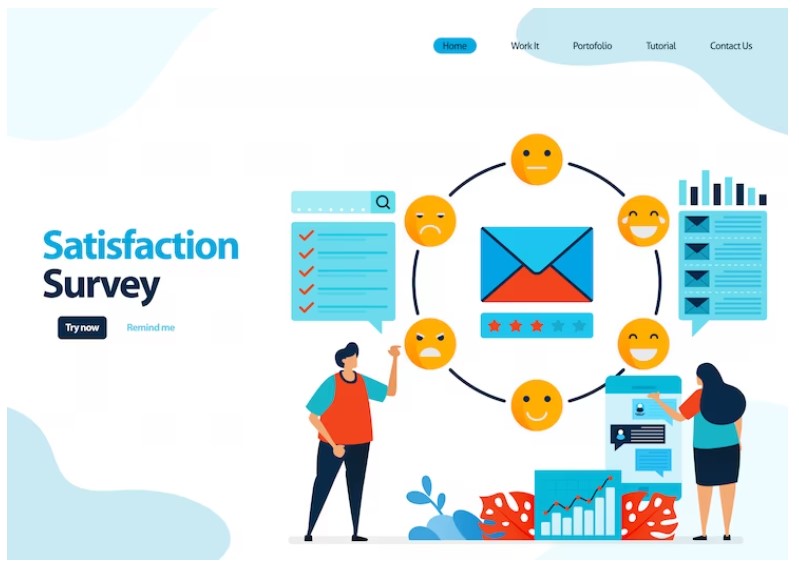Event sponsorship does the heavy lifting of providing the fund that sets your elaborate event plan in motion. Every event entails expenses; money is a crucial resource from the planning stage through marketing to the execution stages. As an event host, you know from experience that raising the necessary funds is often challenging, especially if your company has a small budget. So how to get event sponsorship? This article will offer tips and the best approach to help you get the right sponsorships to make your event a success.
In addition to providing the funding you need, getting the right event sponsors offers other benefits like credibility to your event. Credibility makes marketing your event to other stakeholders like your employees, the target audience, and even the speakers easier.
Who are the Event Sponsors?

Event sponsors are individuals, companies, and organizations who finance part or the total cost of your event in exchange for publicity. In other words, event sponsorship agreements are often symbiotic relationships where each party gives what it has to offer in exchange for what the other has to give. You need sponsors because hosting an event entails many activities like marketing, logistics, media coverage, technical support, and the like.
Even when you have the budget to fund these activities, most require professional expertise, and you’re better off having companies that specialize in each one providing the services. The advantage is that they will offer their best work since they need publicity and promotion through your event.
Why Are Sponsors Important?

Aside from funding, sponsors provide the following benefits:
- Credibility: Many sponsors are often successful people, companies, or organizations in their respective industries. As a result, their names stand out and offer some credibility to any event with which they are associated. In other words, your marketers will likely find it easier to sell your event when you have heavyweights across different industries as your sponsors.
- Publicity: Sponsors provide free advertisement for your brand in the same way your event is an opportunity for them to promote their brands. For instance, most sponsors post events in which they’re involved on social media. This means that many of their audiences might discover your event for the first time. Sometimes, sponsors may publicize your event to promote their brand image, especially if your event is a course they want to be associated with. For instance, a sponsor that wants to be associated with environmental sustainability would publicize your event if it’s about that.
- Increased ROI: Some events involve prizes. Gamification and awarding prizes to your winners is an intelligent way to keep the attendees engaged. It’s human nature to want to win something even if they don’t need it. Aside from being a good event marketing strategy, most attendees would likely be satisfied with your event. The outcome of this satisfaction means more ROI for you and your sponsors. Many companies and brands are willing to be prize sponsors of your event once they believe it would give them the necessary publicity they need. For them, it’s an opportunity to showcase their latest products or the improvements they have made in service delivery.
Different Kinds of Sponsors:

Before you find out how to get event sponsorship, you need to know the different types of event sponsors. Recall that in the previous section, we mentioned that events entail many activities. While some sponsors can fund everything for you, most are only willing to sponsor the parts that give them the publicity they seek. For instance, a video conferencing platform would provide sponsorship for the virtual aspect of your hybrid event. As a result, different kinds of event sponsors can be deduced based on the sponsorship interests.
As an event host, an essential part of pitching for sponsorship is knowing the aspect of your event where prospective sponsors would want to invest their resources. If you need professional services, it would be wide off the mark to pitch for logistics sponsorship to a media company. However, if you need financial sponsorship, any individual, company, or organization can provide it, regardless of what they do.
Based on the above, the kind of event sponsors you should know to inform your pitch are:
1. Financial sponsors
This is the most popular sponsorship you may need continuously for every event you plan. Funding is the thread that ties up all the parts and ensures they work. While financial institutions may be the natural place to seek funding, any category of sponsors can provide financial sponsorship. You only need to develop a proposal presenting an offer they can’t refuse. Financial sponsorship always works when you make your case bearing in mind that financial sponsorship is an exchange of value and not charity from them to you.
2. Venue/virtual event sponsors
The venue plays a massive role in determining how the attendees and speakers will rate your event. People want an easily accessible destination and a venue that offers the best ambiance for engagement. Even with virtual events, you need a conferencing platform that provides the best user experience. If you pay attention to event marketing in recent years, you will notice how marketers stress the destination and the exact venue in their campaigns. They know that the venue is a piece of vital information the target audience needs to make a decision. Also, intelligent event marketers will pick venues and virtual platforms that have the potential to provide the highest promotional value for prospective sponsors.
3. Promotional sponsors
There is usually only so much event marketers can do to promote your event. Promotional sponsors save you the budget and time you would have spent promoting your event. Examples of promotional sponsors include media houses and social media influencers.
So far, the primary benefit sponsors provide is obvious – they provide funding either in cash or in kind to ensure the success of your event. In addition, event hosts derive other benefits from sponsors. Attention to these benefits will inform who you consider for sponsorship and how you draft your proposals and pitch for sponsorship.
4. Prize sponsors
A prize sponsor is an organization or individual that provides goods, services, or monetary contributions in the form of prizes or giveaways for an event, competition, or promotional campaign. These prizes are often used to incentivize participation, reward winners, or enhance the overall experience for attendees. Prize sponsors can range from businesses providing products or services related to the event theme to individuals offering gift cards, vouchers, or unique experiences. Their contribution adds value to the event and helps create excitement and engagement among participants.
5. In-kind sponsors
These kinds of sponsors are the opposite of financial sponsors. Instead of giving you cash, they may offer to provide what you need for an aspect of your event. Often, they are the producers of the products or services they provide. For instance, you can partner with a hotel within your event location to provide reduced or free accommodation for out-of-town attendees in exchange for publicity. Also, you can partner with a videoconferencing platform to offer free services for your virtual attendees. As we mentioned earlier, the essential detail is to ensure there is something in it for the sponsor.
Difference between In-person and Virtual Event Sponsorship

In-person event sponsorship involves individuals, companies, or organizations providing the fund, products, or services you need to execute the offline aspect of the event. On the other hand, virtual event sponsorship involves sponsors providing the resources you need to ensure you satisfy your virtual audience, who will be connecting from locations other than the live venue.
Before the COVID-19 pandemic, most events were entirely in-person. This means attendees had to travel to a particular location and venue to participate in the event. Even when an event host makes provisions for virtual attendance, it is more like a luxury than a necessity. However, the lockdowns that followed the pandemic changed the norm by entrenching virtual events as an essential part of events.
Of course, it’s easier to engage with a live audience than a virtual one, but virtual events benefit hosts and attendees. So, when crafting a sponsorship pitch, you must determine the kind of event sponsorship that would be most beneficial for the prospective sponsors. For example, a videoconferencing platform would most likely sponsor the virtual part of your event more than the in-person. A hotel or an airline company would prefer to sponsor an in-person event since it would give them more value and publicity.
How To Get Event Sponsorship?

How to get event sponsorship can feel like an uphill task. However, sometimes, sponsors may be the ones to contact you. Whichever is the case, you have the duty to ensure that the sponsors you take on are the ones that provide the most relevant advantages for your event. So, before you draft a pitch or accept a sponsorship offer, check out how to choose the right sponsors for your B2B event below:
1. Sponsors that have the kind of audience you are targeting
In the previous section, we mentioned that one of the benefits sponsors bring to your events is publicity. Also, publicity is what they hope to gain from you. Before choosing particular sponsors, you must ensure that your audience and their audience are reasonably similar. This similarity makes marketing and publicity for both parties easier to execute.
2. Sponsors that match your event’s goals
Every event needs credibility, especially if it will be recurring. Therefore, you need to choose only the sponsors whose goals align with yours to remain credible to your audience. For instance, if your event is about lung cancer, it would be a conflict of interest to promote a cigarette company as one of your sponsors. Of course, cigarette companies are rich and can provide the funding you need, but you can’t take their offer if you want your audience to trust you.
3. Sponsors that see your event beyond the ROI
Sponsors may only be willing to invest in your event because of the gain in it for them. However, the best sponsors are those who value your event beyond the ROI. Earlier, we mentioned an example of companies that may want to be associated with environmental sustainability by sponsoring events about the environment. Unlike those who can provide only funding or services, a sponsor who believes in what your event is about would offer more value.
How to Pitch Your Event to Potential Sponsors?

Whether you contacted prospective sponsors or they sought you out, you have to convince them that your event is worth their resources. In the latter case, it is easier to persuade the sponsors since they must’ve developed a significant confidence level before contacting you. Nevertheless, you still need to do more to assure them that your event deserves their sponsorship. An excellent way to achieve this is through a proposal and a data-driven pitch. The points below will help you deliver a good pitch:
1. Products a detailed proposal backed by data
Event sponsors like it when you’re driven by passion, but they like it more when you have data backing up your passion. Providing hard evidence that investing in your event is a good decision is your best bet to securing your sponsors’ support. Amongst many details, the essential data is the performance report of the live and virtual events you conducted previously.
2. Provide audience testimonials
No matter how much data you provide, some people will only get convinced when you show them the opinions of people who have attended your previous events. Testimonials are powerful, especially when they come from credible voices.
3. Emphasize your attendee demography
This information is good data to include in your proposal. As we mentioned earlier, your sponsors need publicity more than anything, and knowing that your audience is precisely those they’re targeting will raise their interest in your event.
Event Survey Questions for Sponsors:

In the previous section, we stated that data is the most crucial factor that makes your event proposal and pitch for sponsorship successful. But how do you gather data?
The above question brings to mind the essence of distributing event survey questions to sponsors for every event you conclude. Aside from providing insight into your event’s aspects that need improvement, survey questions help you gather data and testimonials to prepare better sponsorship proposals for subsequent events. Read our article, 27 Event Survey Questions For Maximum Responses, to know what kind of event survey questions are asked to event sponsors and what are their ideal replies.
Key Takeaway
Most event hosts lament how difficult it is to get event sponsors. This popular opinion is only partially accurate if you approach sponsorship proposals from the perspective that it’s a symbiotic relationship. You have to know what you have to offer in exchange for the resources the sponsors will provide.
Also, choosing the ideal sponsors means looking for those whose goals align with yours. In such cases, going through sponsor reviews on Eventible can go a long way in helping you identify which sponsor to approach. Eventible is the world’s first review platform for B2B events. It collects reviews from attendees, speakers, and sponsors and taps into social proof, allowing potential attendees to make informed participation decisions and event organizers to use all of the social proof (thus collected) to grow their event brands.
Note that you should only look out for sponsors who complement what you do beyond the resources they can provide. Partnering with sponsors that share your values makes the relationship easy and sustainable. It gives your brand the credibility it needs.
Finally, you need data to secure the confidence of prospective sponsors. Presenting a proposal that shows a detailed analysis of what you have done, what you intend to do, and the expected realistic outcome proves more effective every time than rendering a passionate appeal for funding.





Comments are closed.